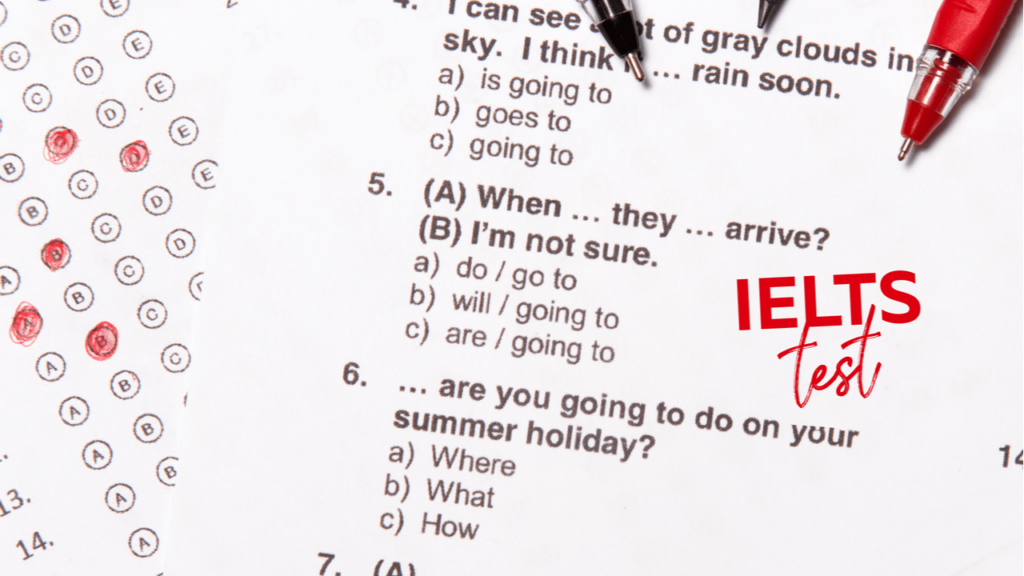Business And Money IELTS Vocabulary: Strengthen Your Vocabulary For IELTS
IELTS judges students on several parameters. The four sections: Speaking, Writing, Listening, and Reading are designed to determine the candidate’s abilities. Out of these sections, there are two sections: Writing and Speaking is where you will need to showcase your vocabulary through excellent and complex words and phrases that puts you in the category of a ‘fluent user’ of English. Up to 25% of your IELTS score depends on
There may be a vast vocabulary list (or, as IELTS examiners refer to it, a Lexical Resource), but knowing long and complicated terms will be useless if you do not understand how to apply them in context. The key to learning to new words is to learn their application.
There are certain common topics that are often used in the speaking and writing sections. According to IELTS experts, one such topic is Money and Business.
Keeping this in mind, this blog has been created to help all the aspiring IELTS test takers learn some new and impressive business and money IELTS vocabulary that is sure to catapult your IELTS band scores to a perfect 9!

Types of Questions to Expect
Before we get to the list of all business and money IELTS vocabulary- which we can assure you will sure leave an immaculate impression on your examiner, but it is important to know the kinds of situations that will prompt you to use these new words. Therefore, firstly we will look at some of the most common types of questions in the IELTS writing and speaking tasks that revolve around the topics of money and business:
Mục Lục
Crack IELTS Exam in first attempt
Leap’s IELTS Programs include live training by experts, mock tests and evaluations.

SPEAKING:
Speaking Part One (General Questions)-
Do you work?
How are your spending habits?
What are your views on investing?
What is your ideal job?
Speaking Part Two (Cue Card)-
Describe a business you admire, who owns this business, and how long have you known about it.
Speaking Part Three (Follow Up on Cue Card)-
Why do people like starting their own business?
What are the different risks involved in starting your own business?
What kind of tasks is one expected to undertake when running their own business?
WRITING:
Money making is important for a business, but they also come with some social responsibilities. Do you agree or disagree?
What are the advantages and disadvantages of measuring a business’ success only by the amount of money it makes?
Money is the only driving force behind working hard at the company you’re employed in. To what extent do you agree or disagree?
List of Band 9 Money and Business IELTS Vocabulary
Now that you are aware of some of the different scenarios where you can be asked to talk about money and business in detail, Here are some of the best business and money IELTS vocabulary additions that will help flaunt your great English language skills:
- Exorbitant: When something is priced unreasonably high. E.g., I couldn’t believe my ears when the auctioneer opened the bidding at an exorbitant amount.
- Frugal: Being cautious of one’s expenses. E.g., a wise man once said that you should always be frugal with your money but generous with your family.
- Bargain Hunter: Someone who constantly looks out for the best sales and deals. E.g., as soon as Zara announced its end of season sale, hundreds of bargain hunters queued up outside all its stores in Delhi.
- To make a profit: When you earn more than what something costs. E.g., businesses are not allowed to make a profit exceeding 3 times their monthly expenses as per the new law.
- To raise a company profile: Making people aware of the business and its activities. E.g., the entire marketing team of the newly launched KBC Limited has been putting in its blood, sweat and tears to raise the company’s profile.
- To go bust: When a business is compelled to shut down due to its failure. E.g., Martha started a business that she couldn’t stop from going bust within just 3 months of starting out because her investors pulled out.
- Penny-pincher: Someone who is extremely careful with their money. E.g., Stacy is a penny-pincher because she grew up in a financially weak family.
- Stingy: Someone who is not willing to spend their money. E.g., Raman was being excluded from his friends’ meet up plans because of his reputation as a stingy person.
- Big spender: Someone who usually spends a lot. E.g., being a big spender seems to be a common bane for many belonging to the Gen Z population.
- Burn a hole in one’s pocket: Someone who is unable to save their money. E.g., her allowance is burning a hole in her pocket because she can’t wait to spend it all on partying out as soon as she receives it!
- Spendthrift: Someone who is known for not spending wisely. E.g., Susan is a charming but spendthrift woman who needs to start saving up for her higher education abroad.
- Cash flow: Money that is coming in and going out of a business. E.g., it is important to maintain a positive cash flow to keep the business afloat.
- Niche business: A business targeting to sell to only a small and particular market group. E.g., the rising number of niche businesses is helping many people make higher profits on the internet.
- Balancing books: To not spend more money than is being earned. E.g., among the many responsibilities of a Chartered Accountant, balancing the books is a major one.

Conclusion
Making use of the above business and money IELTS vocabulary is sure to help all IELTS exam takers because it ensures them a great score in terms of showcasing their lexical resources. Further, a good IELTS score can secure your seat in the best universities. To learn from about IELTS and other exams visit the leapscholar blog, today!















![Toni Kroos là ai? [ sự thật về tiểu sử đầy đủ Toni Kroos ]](https://evbn.org/wp-content/uploads/New-Project-6635-1671934592.jpg)


